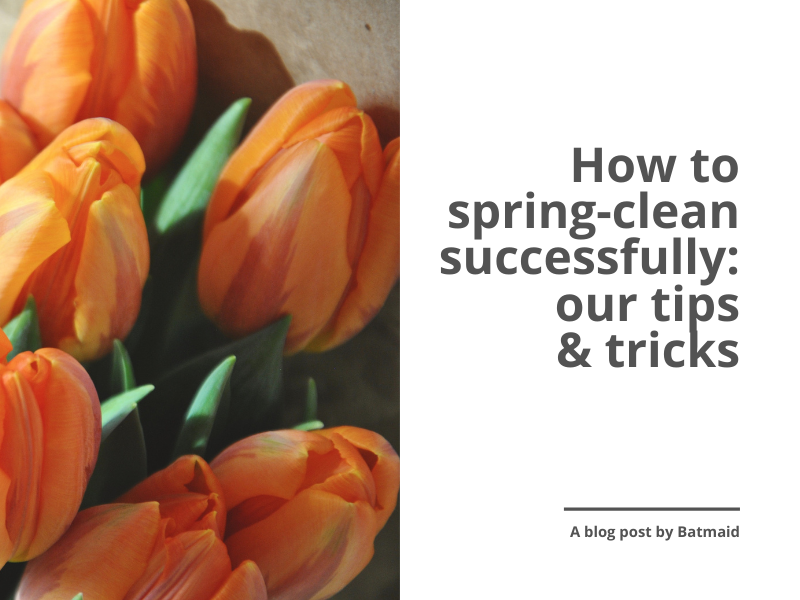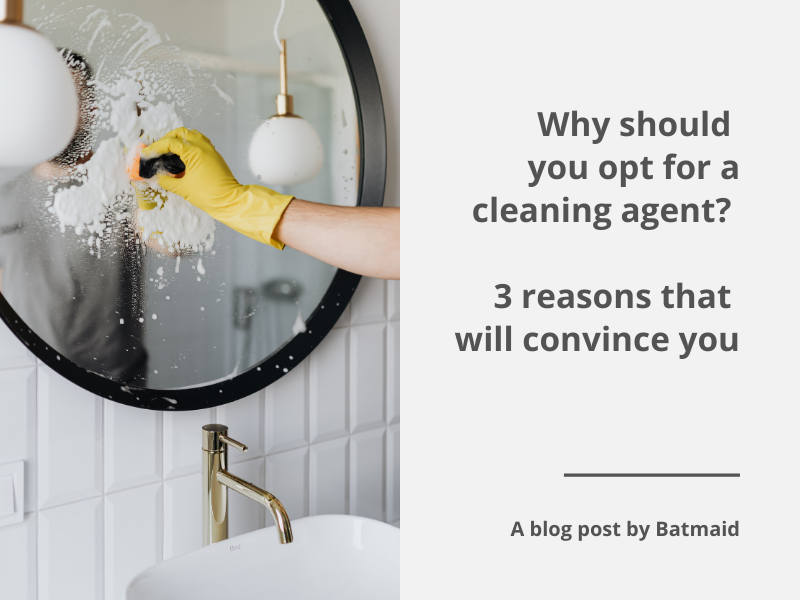How to clean and bleed a radiator
December 19th at 4:33pm
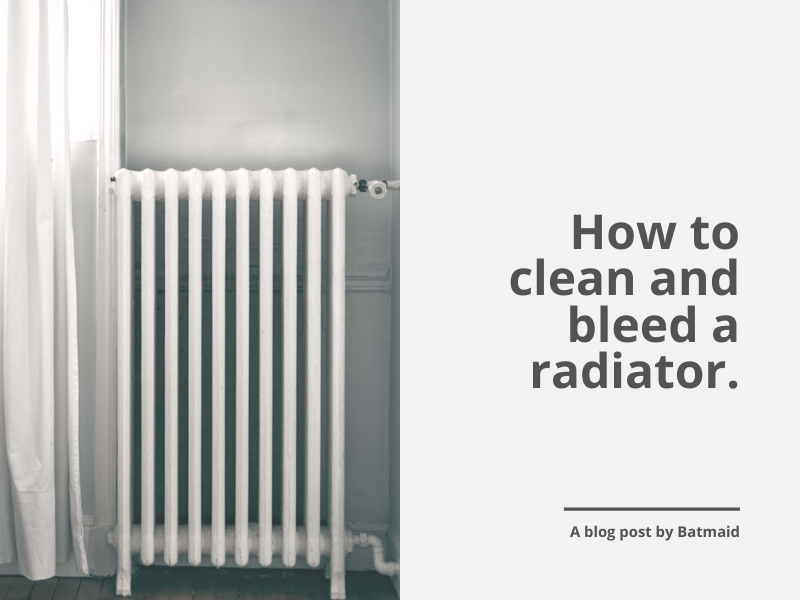
The winter season has well and truly reared its head: We’re feeling the cold and the radiators are running full tilt! It is therefore important to take care of them to ensure that they will heat your living rooms properly. Did you know that a poorly maintained radiator can cause serious loss of energy in your home, and therefore additional costs on your heating bill?
To avoid this, cleaning and bleeding your radiators is essential! It is often thought that this task is reserved for professionals, but don't be mistaken! In reality, it is very easy to maintain them regularly without the help of a heating engineer. In this article, we reveal some tips and tricks to take care of your radiators.
Why clean and bleed a radiator
That's a good question! Radiators are the last thing you think of when cleaning, even though regular maintenance is crucial with regards to your health and your wallet. Have you ever smelled an unpleasant odour of dust after turning on your radiator? It’s due to a buildup of dust either on top of or inside your radiator. When it is turned on, the dust heats up and the smell fills the room. More importantly though, a buildup of dust can irritate your respiratory system and serve as a home for dust mites, which can multiply at an alarming rate and cause allergic reactions if they are not dealt with. If you’re facing this problem, read our article about how to get rid of dust mites.
So the main health risk is a respiratory allergy, but what about the risks to your wallet? When your radiator becomes clogged with dust or standing water in the pipes, it becomes less efficient and uses more energy for heating. So, the dirtier your radiator is, the more energy it uses, and the more you pay. A simple cleaning will save you money on your heating bill! A poorly maintained heater also puts more pression on your boiler, which will be damaged in the long term.
How to clean a radiator
Now you know that cleaning your heater is only going to cost you a little time but could save you big bucks down the line. We therefore encourage you to clean the exterior about once a month, taking care to follow the recommendations specific to each model.
Cast iron radiators
For traditional cast iron radiators, nothing could be simpler: First protect your floor, then use a bent brush and soapy water to scrub every nook and cranny.
Electric heaters
It’s a little more complicated when it comes to electric heaters, as without taking the proper precautions you are at risk of electrocution or fires. Make sure to take care and unplug your appliances before attempting to clean them, and never fiddle with any of the electrical elements within. Once you’ve unplugged it, it’s time to get the hoover out and give it a good once-over.
Pro tip: If your heater is very dusty, use a hair dryer to remove the embedded dust!
If the dust resists despite your efforts, do not hesitate to clean your heater with soapy water, taking care to rinse it and dry it completely before plugging it back in.
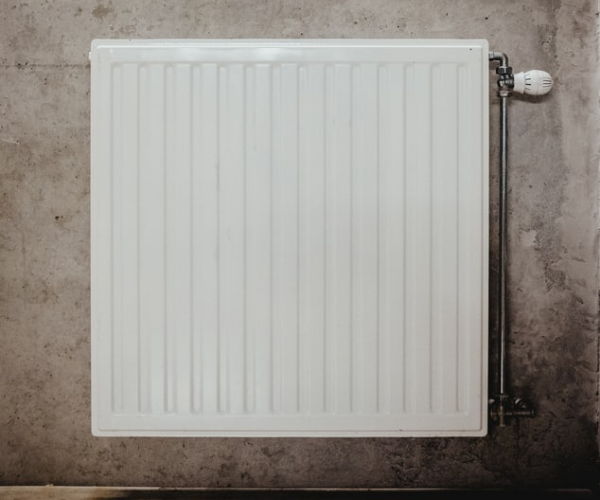
Gas or oil bath heaters
If you have a gas or oil bath heater, unplug it before cleaning it with a brush.
However, if you have any doubts about what to do, here's a short video that will show you how to make your heater shine!
How to bleed a radiator in three steps
Ideally, you would want to be bleeding your radiators in autumn (just before they start getting put through their paces for the winter), but you can do it anytime you notice a dip in their performance or if they start making unusual noises.
The process itself isn’t difficult, but for those of you living in a building with a shared heating system, make sure you contact your building manager or concierge beforehand to ensure you don’t cause problems for other residents.
But why bleed your radiators? As mentioned above, air or water can stagnate in the pipes of your radiators, thus reducing their efficiency over time and drastically increasing their energy consumption. In addition, inefficient heating puts a lot of strain on your boiler and can damage it in the long term. It is therefore essential to bleed them.
What you need: a spanner, some cloths, a pair of gloves and a basin.
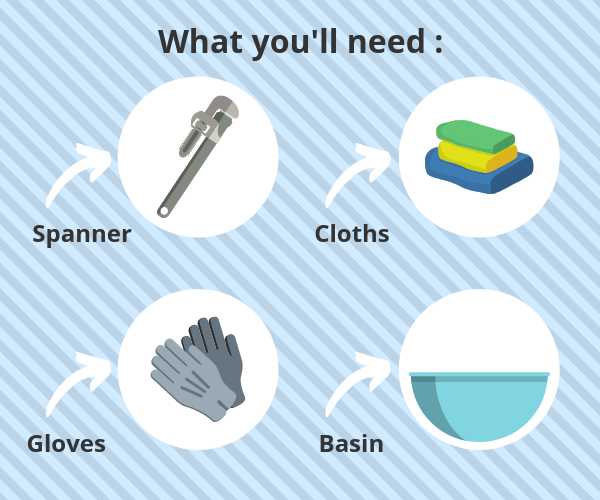
- Place your boiler on summer mode or turn it off completely during the cleaning.

-
Once you have protected yourself with appropriate gloves and your floor with a cloth, grab your wrench and open up the water evacuation valve to allow the residual water to run free, collecting the run-off with your basin.

- Once the valve has run dry it’s time to close it back up tight and then proceed to checking the pressure of your radiators around the house. To do so, you’re going to have to head over to your boiler and find the pressure gauge, which should be sitting between 1 and 1.5 bars. If you happen to live in a multi-story house, then it should realistically be between 1.8 and 2 bars to properly service all floors. Once that’s done, head back to the radiator you have just cleaned and check to make sure it isn’t leaking.
If during the process you have the slightest doubt, or if your heating problem persists, it is imperative to notify a heating engineer for a complete checkup of your installation.
You are now ready to spend long winter days in the warmth of your home! If you have any other tips and tricks to take care of your radiators, don't hesitate to share them with us with a comment.
